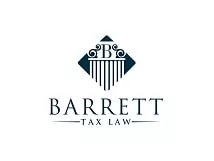Canada Revenue Agency is shifting attention to Staffing Agencies
Recently the Canada Revenue has been ramping up their audits of Employment Agencies, an industry which is estimated to have defrauded the CRA of hundreds of millions of dollars of HST.
The problem (for the CRA) is that many agencies don't actually supply their own staff but rather they rely upon a network of subcontractors to provide employees . Sometimes there are multiple layers of subcontractors and the those in the middle never see or deal directly with actual employees. They just act as brokers.
Between each set of parties there is HST to be paid and collected, and in turn each party claims an Input Tax Credit ("ITC") for the HST paid.
Ultimately, in many of these chains, the final party in the chain receives the HST money and absconds with it, which has resulted in countless hundreds of millions of dollars of HST to never reach the CRA. And when a staffing agency finds itself somewhere in a chain where the final party didn't remit their HST, they can be assured of an HST tax audit.
Tax evasion is a crime that can lead to imprisonment
Participants from staffing agencies who have participated in "sham" schemes such as the one outlined below, have already been charged with fraud and have been sentenced to prison.
In June 2020, two staffing agencies, Jane General Services Ltd, 2322944 Ontario Ltd and their shareholder Vanessa Jane Canlas pleaded guilty to four counts of fraud under the Criminal Code related to tax evasion and GST/HST evasion on their corporate tax returns. Ms. Canlas also pleaded to one count of income tax fraud on her personal tax returns. In September 2020, the Toronto Superior Court of Justice sentenced Ms. Canlas to two and a half years in prison and a fine of $833,238.
Tax evasion is a crime that can lead to jail time and a criminal record. In recent years, the CRA has directed its focus on staffing agencies (or employment agencies) particularly regarding the input tax credits. From April 1, 2019 to March 31, 2020, 13 taxpayers were sent to jail for a total of 18.5 years with 32 convictions.
The following is a typical example of staffing agency sham:
- A business owner who is a GST registrant, hires a third-party staffing agency to acquire temporary workers who are often undocumented. The staffing agency then charges the business owner for the labor provided plus GST/HST. When the business owner pays the invoice, he claims input tax credits and the staffing agency is supposed to remit the amount to the CRA. However, the staffing agency disappears and never remits any GST/HST. Most of the time, none of the staffing agency's information is even real and CRA cannot even find them. Sometimes the scheme can involve multi-layers of subcontractors in the middle.
CRA will generally audit the business owner if the staffing agency absconds
Unfortunately, when this kind of situation happens, the CRA will most likely commence an aggressive audit of the business owner who hired the staffing agency to try to find any evidence that indicates the owner either knew or ought to have known that staffing agency was a sham. If the CRA believes it has found this kind of evidence, it would deny the business owner the input tax credits related to the staffing agency's service.
CRA must exercise their investigative power in accordance with taxpayer's Charter rights
Although the CRA has a wide range of powers which include tax audit and criminal investigative powers, the Supreme Court of Canada in R v Jarvis, 2002 SCC 73 held that a distinction must be drawn between the audit and investigative powers prior to converting a tax audit into a criminal tax investigation, and a taxpayer's rights under the Canadian Charter of Rights and Freedoms must be protected.
The decision in B.T. Céramiques Inc., et al. v. Québec Revenue Agency, 2020 QCCA 402 also sheds some lights on the consequence when the lines between the audit power and investigative power are blurred. In this case, B.T. Céramiques Inc.(BT) was audited by the CRA initially and compelled to disclose further information and documents from its accountant who was under investigation for a separate tax avoidance scheme. However, the CRA then blurred the lines between its audit and investigative powers by using the evidence gathered from its audit to obtain multiple search warrants against BT, and seized its corporation and third-party records. Since the information obtained through the search warrants was under the disguise of an audit when it was in fact a criminal investigation, the Quebec Court of Appeal affirmed the trial judge's decision that the evidence seized was illegal and acquitted BT.
Tax tips - contact an experienced Canadian tax lawyer to protect your rights
If you have received a letter which has referred to a "sham" transaction or to a "carousel" scheme, act with extreme caution and get advice right away. When an honest business owner finds themself caught in a staffing agency scam, the CRA may allow them to claim the input tax credits if they can prove that they exercised reasonable due diligence. However, since the CRA's success rate regarding this type of situation is more than 50% based on prior cases, it is highly recommended for a business owner to immediately contact an experienced Canadian tax lawyer to establish communication with the CRA. Our experienced tax lawyers will ensure your Charter rights are protected and ensure that the CRA will be held accountable if the line between the audit power and the criminal investigative power is crossed.
The content of this article is intended to provide a general guide to the subject matter. Specialist advice should be sought about your specific circumstances.


